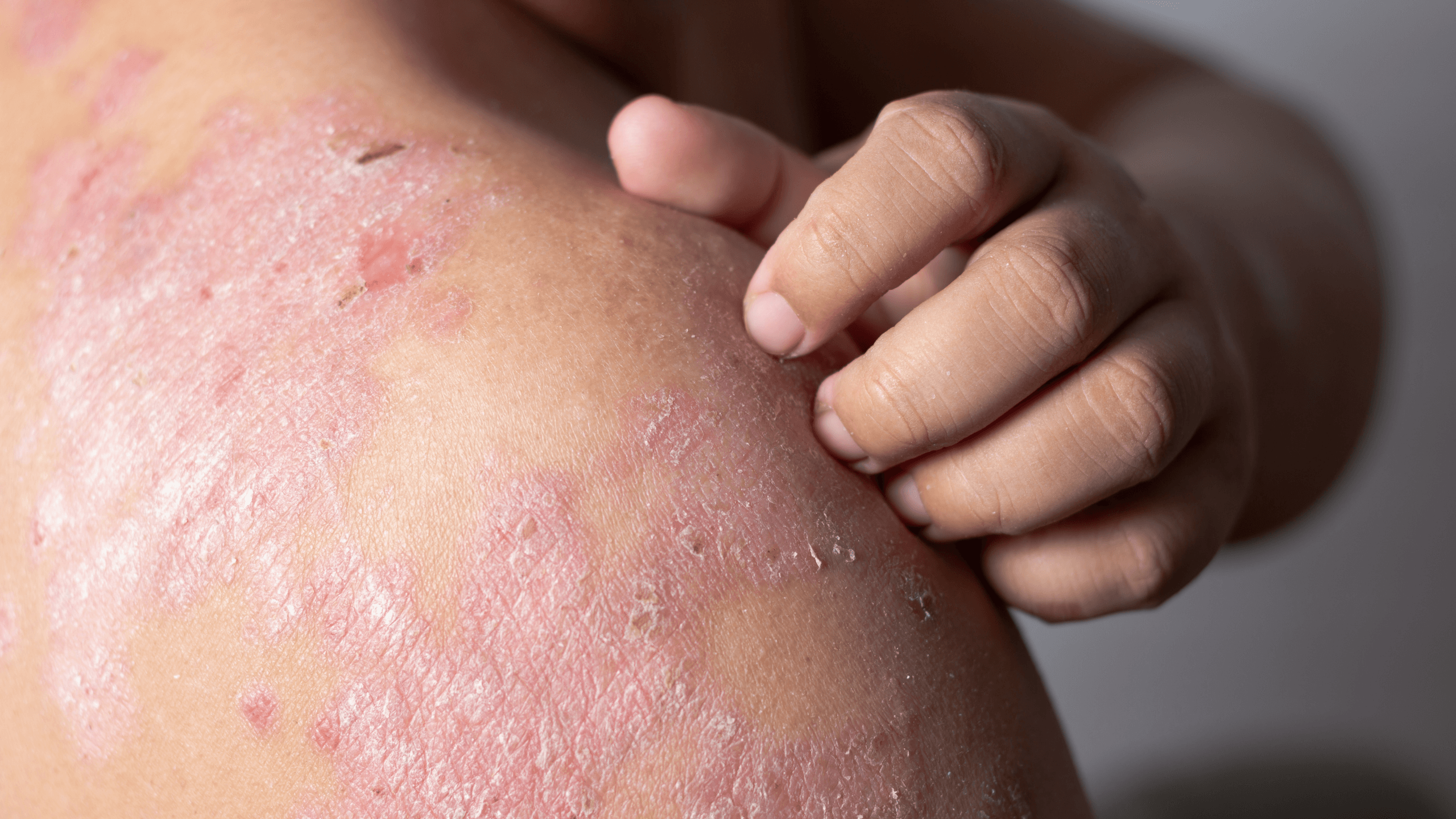Dealing with eczema can not only be itchy and frustrating — but also confusing! We know what it’s like to spend hours searching the internet to better understand what eczema is, how long it’ll last, and what it means for your skin health going forward. That’s why we compiled a list of some of the most frequently asked questions about eczema. We want to help save you time and put your mind at ease.
What is eczema?
What does eczema look like?
Eczema has seven different types that can all look different, but typically shows up as a red rash on the skin. It’s often an unraised patch of skin and appears rough, leathery, and sometimes cracked. Eczema can appear anywhere on the body but is very common on the back of the knees or in the crease of the elbows.
Can eczema be cured?
There is no known treatment to completely cure eczema. The good news is you can manage and help prevent flare-ups once you’ve identified your personal eczema triggers and have found a topical treatment that works at the root cause (more on that below).
What causes eczema?
While the exact cause of eczema is unknown, new research continues to emerge, pointing to two main factors as the cause of eczema.
1) Most people with eczema have higher levels of inflammation in the body as a result of an overactive immune system. That means inflammation is a likely culprit.
2) Then there’s the Staphylococcus aureus bacteria (or staph A.). Researchers used to believe Staphylococcus aureus overgrowth in the skin microbiome was a symptom of eczema resulting from excess scratching and broken skin. Now, staph A. is thought to be the real trigger of eczema flares, rather than a byproduct.
Why did I suddenly get eczema?
Eczema flare-ups can be triggered by many different factors, including:
- Irritation from detergents or other household cleaners
- Fragrances
- Fabrics, such as wool or polyester
- Airborne allergens
- Hormonal changes
- And much more
If you’re concerned about eczema that has suddenly appeared, visit a dermatologist so they can evaluate which factors may be at play in your life!
Can stress cause eczema?
Stress doesn’t cause eczema, but it can contribute to flare-ups. When you’re stressed, your body often goes into fight-or-flight mode, which can suppress the immune system and create inflammation in the body. These stress responses are what can contribute to unwanted eczema symptoms. It’s important to manage this through healthy stress management practices like exercising, journaling, getting enough sleep, and dealing with negative emotions. You can read more about the connection between eczema and stress here.
Are eczema and diet linked?
How diet affects your eczema can be a controversial topic, and unfortunately, there’s not a lot of concrete evidence to suggest whether your diet does or does not contribute to eczema flare-ups. However, anecdotal evidence from people just like you suffering from the skin condition suggest diet could affect your eczema, especially if you have undiagnosed food intolerances. Common food triggers for eczema include:
- Cow’s dairy
- Eggs
- Soy
- Gluten
- Nuts
- Fish
- Shellfish
Reducing the amount of processed foods you eat will also help to reduce inflammation in the body that’s linked to eczema.
Living with eczema
Does eczema spread if you scratch it?
Eczema isn’t contagious and can’t spread from one person to another. However, eczema can spread to various body parts (on the same person). This doesn’t happen due to scratching; but, scratching can definitely make eczema worse!
Can I get rid of eczema fast?
In order to manage an eczema flare-up, it’s important to moisturize the skin, restore balance to the skin microbiome, and identify potential eczema triggers.
There are hundreds of different eczema creams on the market to help bring moisture back to the skin, but what most eczema treatments fail to address is the imbalance of the specific type of skin microbiome imbalance associated with eczema flare-ups.
Gladskin Eczema Cream uses Micreobalance® (a patented smart protein) that works with your skin to restore balance to the skin microbiome gently and effectively while moisturizing at the same time. It’s formulated without any resistance-causing or harsh ingredients, so you don’t have to worry about that.
Gladskin Eczema Cream is free of steroids, fragrances, drying alcohols, preservatives, parabens, and sulfates. It’s clinically tested and safely formulated for anyone three months and up.
That means you can treat your eczema without any “buts.” Just results.
In fact, four out of five users experience reduced itch and redness associated with eczema. You can learn more here.
What is the difference between eczema and psoriasis?
Eczema and psoriasis are two skin conditions that result in red rashes. They can even have similar treatment options. However, they are distinctly different. If you’re not sure whether you’re dealing with eczema or psoriasis, read through this in-depth comparison here.
How long does eczema last?
Unfortunately, this is a complicated question without a precise answer. Eczema isn’t curable, but you can manage flare-ups. How long an eczema flare-up lasts will depend on how quickly you can identify triggers, how well you can keep the skin moisturized, and what’s happening on and below the skin that’s contributing to your eczema.
No cure doesn't mean no hope
If you’re confused and frustrated with your eczema, it’s important to know that you’re not alone! We at Gladskin are committed to helping you better understand your skin health while providing you with tools like Gladskin Eczema Cream to help reduce itching and redness — so that you can feel comfortable and confident in your own skin again!

